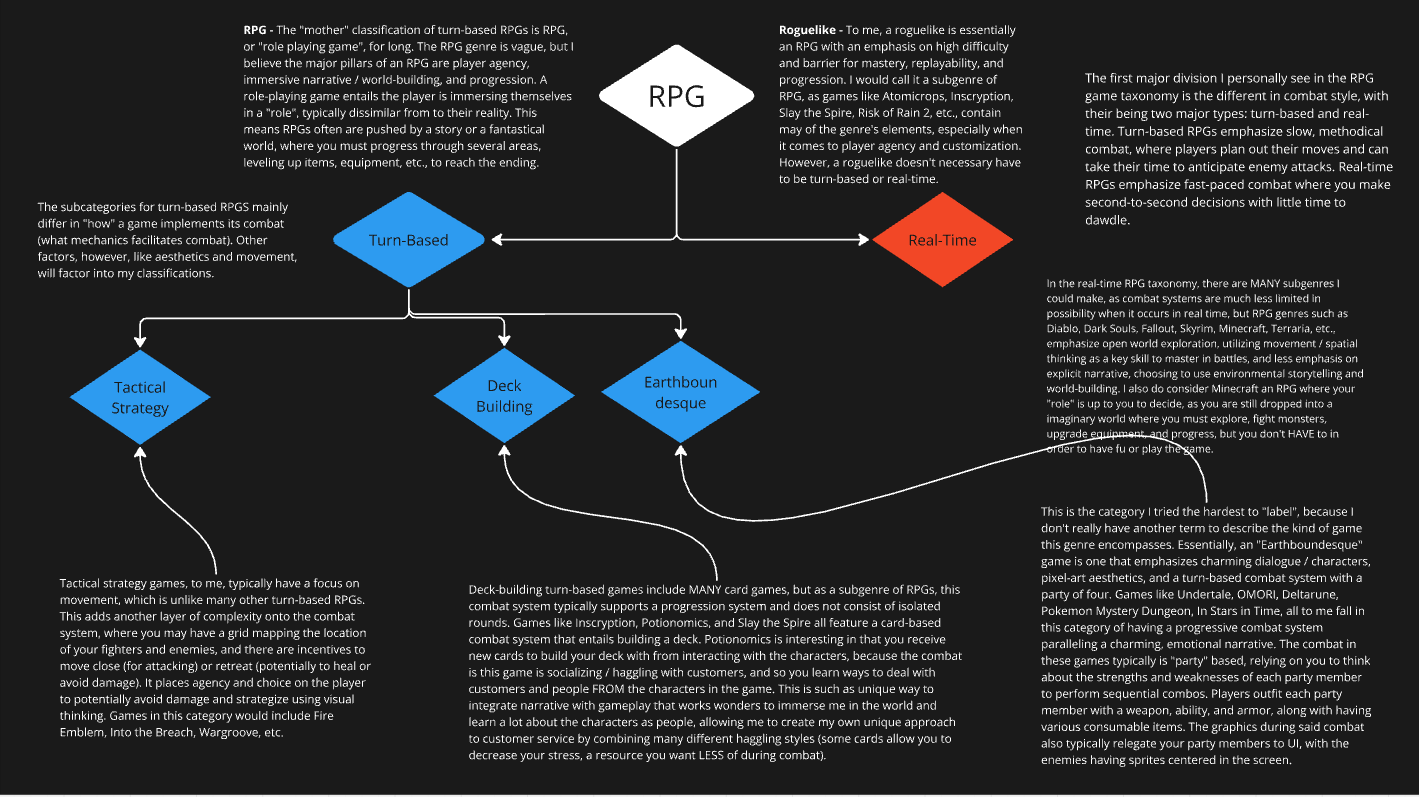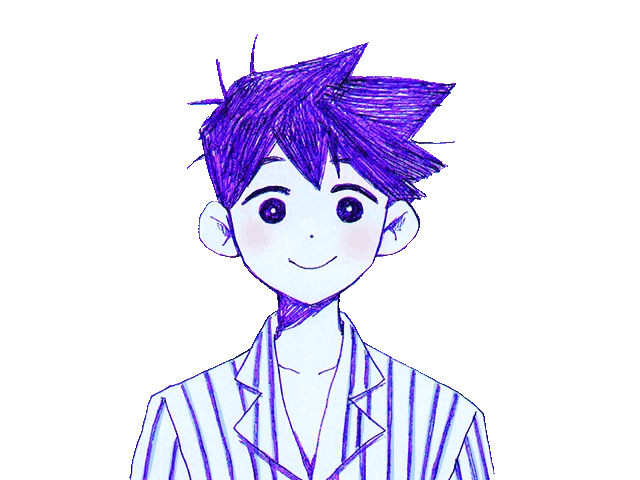
This post will be a brief genre analysis. I'm testing my writing ability for future game design essays / analyses. I will attempting to explain the core systems and appeal of a turn-based RPG and why.
What is a Turn-Based RPG?
Above, I have attached an image of a taxonomy I made for my own understanding, of how I visualize and define a turn-based RPG. I first had to define an RPG (role-playing game), and, as stated above, I believe an RPG emphasizes player agency, fantasy, and progression, wherein a player is immersed in a world and character to complete either narrative (story) or gameplay (game areas, bosses, etc.) arcs.
Core Systems
Turn-Based combat, unlike real-time combat, is slower and requires longer term strategy. While many RPGs use real-time combat (Skyrim, Dark Souls, Fallout 4), I believe turn-based combat contributes a unique framework for immersing a player. The mechanic of allowing the player and their enemies to take turns imbues both sides with a sense of, fairness, and equality. We get more time with both our player character, our party members, and our enemies, and so the player is given more time to engage with the narrative underneath the immediate gameplay.
Unique Language
Audience
Architects, Bards, and Bounty Hunters are the four profiles that would best match the style of turn-based RPGs. Turn-based RPGs prioritize strategic combat that requires critical planning, and the player is rewarded to find the move with the most beneficial outcome. Architects would enjoy the customization aspect of creating a good build that progresses them through enemy combat the most effectively, while Bards and Bounty Hunters would enjoy the more narrative aspects of the games and how emotionally driven the combat is.
Subgenres & Game Inheritence
From previous genres, I believe the turn-based genre has inherited many of its traits from the earliest of its kind, such as Chrono Trigger, Dragon Quest, Final Fantasy, etc. But before that, there were old RPGs made for the first personal computers, and so ultimately, I think the most critical trait that the turn-based genre takes from RPGs is the fantasy element; the turn-based combat is in service of an immersive experience that puts the player in a fantastical world in which things don't play out the way they would in reality.
Trope I've Noticed

Did you like this post? Tell us